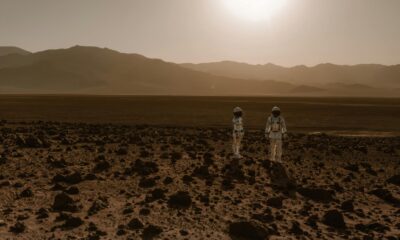Civic Science Observer
Opinion: Do we need civic scientists?

Not everyone can be a scientist, but anyone can be a civic scientist. Civic science started as an effort to connect the public with science and nature. The goal is to connect the outside world to the inner workings of science, and reduce the barriers between science and the rest of society. In the last decade, the growth of civic science has made science an equitable and access field for both non-scientists and scientists alike.
By empowering people with the knowledge to contribute to science, civic science has expanded the ability to collect data from around the world, allowing scientists to solve some important questions. These projects have helped control invasive species, protect heritage sites, and restore habitats.
Through the use of bird identification apps, civic scientists have helped log over 8,000 bird species across the globe in just four days a year — helping scientists track bird migrations and better understand bird population dynamics.
Projects can range from actively participating in community events, like removing invasive weeds and planting native species to sitting at home and ringing the fish doorbell, to help fish safely migrate through the Utrecht canals (which, by the way, has started back up for the season).
However, being a civic scientist comes with responsibilities: Volunteers typically need to undergo some sort of training or use certain technologies to ensure their data collection is accurate. They also need to be willing to abide by any rules or boundaries set forth by the lead scientists. These rules are typically set to protect the civic scientists, the environment around them, and the integrity of the data they are collecting.
Data integrity is extremely important for scientific studies, as the information accumulated is useless if it has not been collected under similar mannerisms — hence the importance of the rules. It would be like having seven bakers bake a cookie using their own recipe, and then arguing that different bakers make the same cookie taste unique, even though they all used entirely different recipes.
To help make this connection easy, scientists have built in mechanisms into a lot of apps and technologies that help verify which data is viable or have procedures that validate data through a system of one or more checks.
But scientists are not the only ones who stand to benefit from civic science projects. By breaking down formal learning environments, civic science has helped engage community members in scientific processes, and break down the traditional structures of scientific learning.
Because of this, civic science has become a beacon of hope in increasing scientific literacy in both adults and children by giving these non-scientists the ability to understand scientific processes, and more importantly, incorporate research and fact-checking into their decision making.
As we move out of the depths of the COVID-19 pandemic, reports have been finding that the public’s trust in science has continued to decrease. The connections that civic science builds between scientists and the public could enable transparency between the two groups, and potentially help scientists regain some of the public’s trust.
Being a part of these large scientific projects has also been found to be mentally beneficial to participants. A recent study reported that, while still in its early stages of research, scientists found that bird-feeding was positively associated with mental well-being in urbanized areas, as it increased human connections to nature. An earlier study found similar positive associations through connecting humans with nature, and even suggested the potential benefits to the growth and development of children.
While the organization behind civic science project requires a lot of time, effort and communication, the benefits are clear: Civic science is helping advance scientific research, while fostering positive connections between the public, science and nature.
Gina Errico worked with the Los Angeles Times as an AAAS mass media fellow in 2023. She completed her master’s degree in plant biology, which included the study of tree seedling survival in the tropical forests of Costa Rica. As a science communicator, Errico has spent the last several years working with communities and environmental non-profits to disseminate scientific findings to non-scientists through social media, news articles and public outreach.

-
 Audio Studio1 month ago
Audio Studio1 month ago“Reading it opened up a whole new world.” Kim Steele on building her company ‘Documentaries Don’t Work’
-
Civic Science Observer1 week ago
‘Science policy’ Google searches spiked in 2025. What does that mean?
-
Civic Science Observer1 month ago
Our developing civic science photojournalism experiment: Photos from 2025
-
Civic Science Observer1 month ago
Together again: Day 1 of the 2025 ASTC conference in black and white
Contact
Menu
Designed with WordPress
























